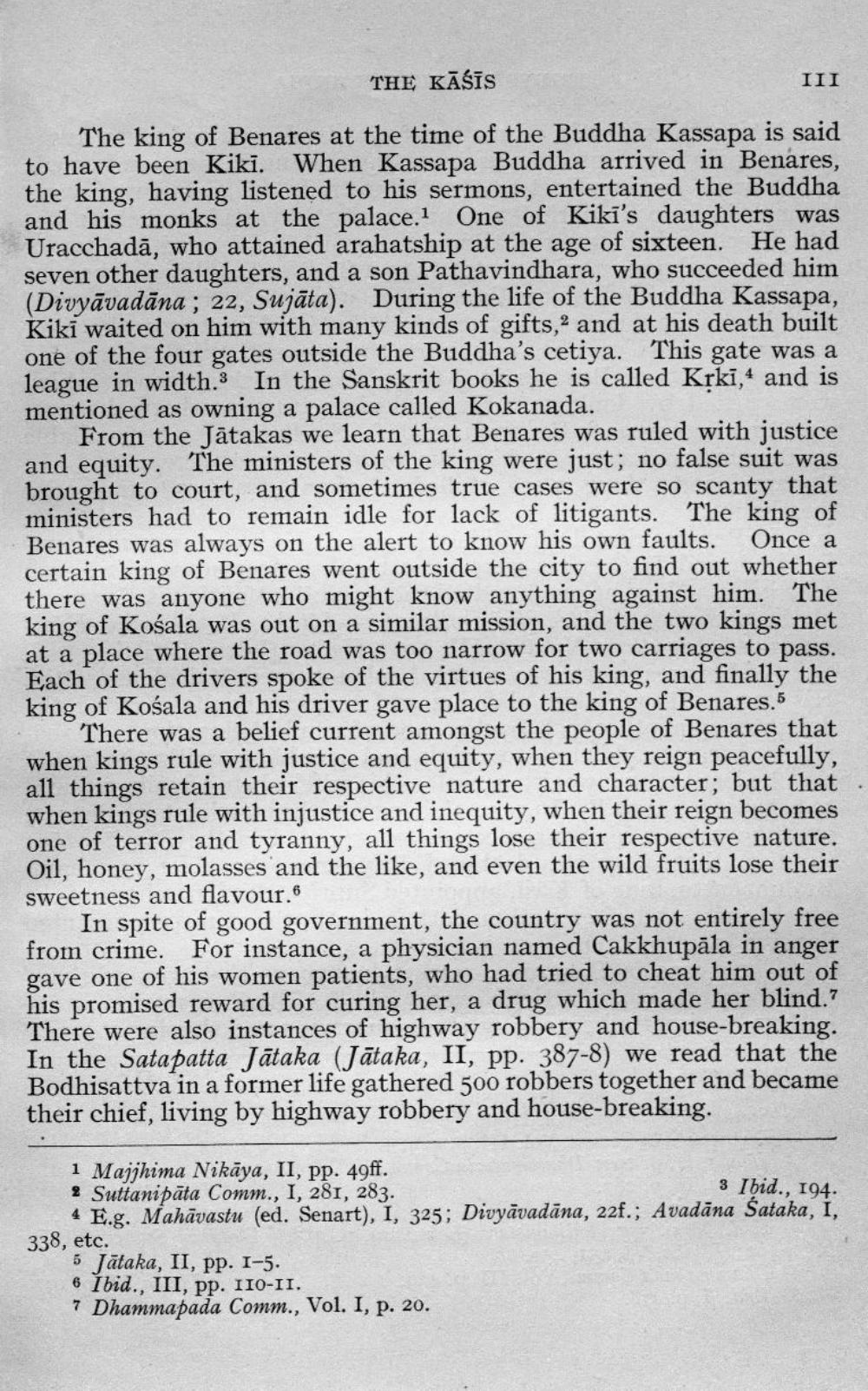________________
THE KĀŚīs
III
The king of Benares at the time of the Buddha Kassapa is said to have been Kiki. When Kassapa Buddha arrived in Benares, the king, having listened to his sermons, entertained the Buddha and his monks at the palace. One of Kiki's daughters was Uracchadā, who attained arahatship at the age of sixteen. He had seven other daughters, and a son Pathavindhara, who succeeded him (Divyāvadāna; 22, Sujāta). During the life of the Buddha Kassapa, Kiki waited on him with many kinds of gifts, 2 and at his death built one of the four gates outside the Buddha's cetiya. This gate was a league in width.3 In the Sanskrit books he is called Krkī,4 and is mentioned as owning a palace called Kokanada.
From the Jātakas we learn that Benares was ruled with justice and equity. The ministers of the king were just; no false suit was brought to court, and sometimes true cases were so scanty that ministers had to remain idle for lack of litigants. The king of Benares was always on the alert to know his own faults. Once a certain king of Benares went outside the city to find out whether there was anyone who might know anything against him. The king of Kośala was out on a similar mission, and the two kings met at a place where the road was too narrow for two carriages to pass. Each of the drivers spoke of the virtues of his king, and finally the king of Kośala and his driver gave place to the king of Benares.5
There was a belief current amongst the people of Benares that when kings rule with justice and equity, when they reign peacefully, all things retain their respective nature and character; but that when kings rule with injustice and inequity, when their reign becomes one of terror and tyranny, all things lose their respective nature. Oil, honey, molasses and the like, and even the wild fruits lose their sweetness and flavour.6
In spite of good government, the country was not entirely free from crime. For instance, a physician named Cakkhupāla in anger gave one of his women patients, who had tried to cheat him out of his promised reward for curing her, a drug which made her blind.? There were also instances of highway robbery and house-breaking. In the Satapatta Jātaka (Jātaka, II, pp. 387-8) we read that the Bodhisattva in a former life gathered 500 robbers together and became their chief, living by highway robbery and house-breaking.
1 Majjhima Nikaya, II, pp. 49ff.
3 Ibid., 194. % Suttani pāta Comm., 1, 281, 283.
4 E.g. Mahāvastu (ed. Senart), 1, 325; Divyāvadāna, 22f.; Avadāna Śataka, I, 338, etc.
6 Jataka, II, pp. I-5. 6 Ibid., III, pp. 110-II. 7 Dhammapada Comm., Vol. I, p. 20.




